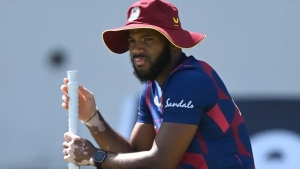West Indies cricketer John Campbell finds himself in a frustrating state of limbo as his appeal hearing before the Court of Arbitration for Sport (CAS) against his four-year ban is postponed for a sixth time without any explanation.
The saga began in April 2022 when Campbell was handed a four-year ban for refusing to submit a blood sample. Despite the ban being retroactively effective from May 10, 2022, Campbell and his attorneys were determined to fight the decision. In December 2022, they filed an appeal with CAS, seeking justice and the opportunity to clear Campbell's name.
Months have turned into years as the appeal process drags on. The matter was finally heard before CAS in April 2023, raising hopes for a resolution. However, those hopes were dashed when the decision, initially scheduled for August 31, 2023, was postponed repeatedly, with the latest ruling date set for May 31, 2024.
For Campbell, each postponement brings a fresh wave of frustration and uncertainty. The prolonged legal battle takes its toll on him, both mentally and emotionally. As a professional athlete, the uncertainty surrounding his future is particularly agonizing.
Unfortunately, Campbell's case is not an isolated incident. Many athletes, across different sports and countries, find themselves entangled in the web of the sports dispute resolution system, unable to access timely justice. The ineffective processes of CAS leave athletes like Campbell stranded, facing the daunting prospect of abandoning their careers due to the financial and emotional strain of prolonged legal battles.
Calls for reform echo loudly across the sporting world. Human rights experts urge CAS to overhaul its processes to ensure fairness and transparency for all athletes. Player associations, including the World Players’ Association (WPA), the Federation of Cricketers’ Association (FICA), and the West Indies Players’ Association (WIPA), stand in solidarity with Campbell, demanding immediate action from CAS.




























